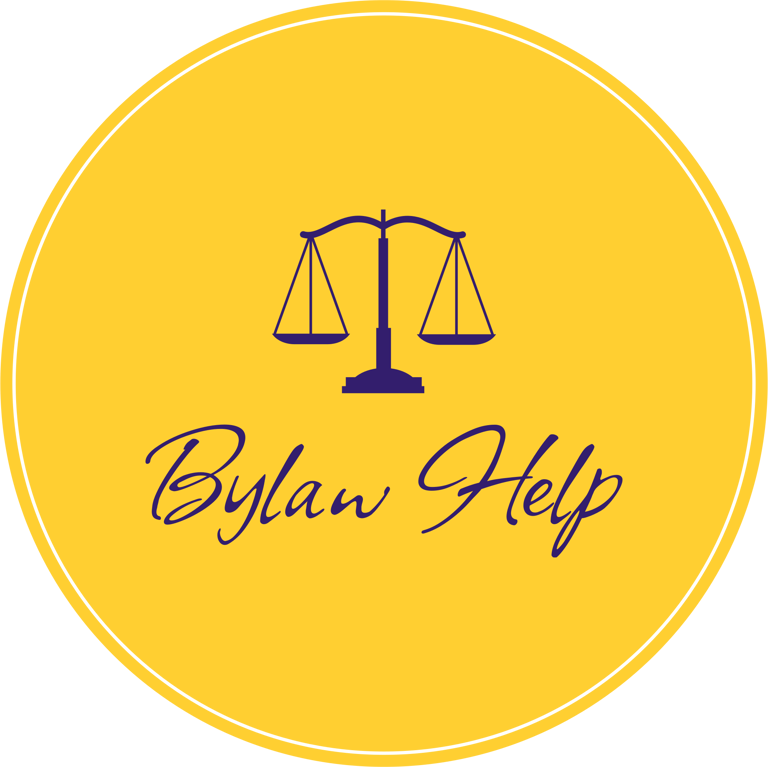Bylawpedia
Quasi-Judicial Proceedings
Author: Michael Tillmann
Published: March 24, 2024
Last Updated: April 4, 2024
Quasi-judicial proceedings are given the name because they have similarities to judicial proceedings, such as trials in the court system, but are not actually judicial proceedings in the strictly legal or traditional sense (Legal Information Institute (Cornell Law School), n.d.; Merriam-Webster, n.d.). A quasi-judicial proceeding may include hearings that resemble trials, but they also may be less formal, such as a decision made by administrative officials. A proceeding will normally be considered quasi-judicial if it involves making decisions about the legal rights, privileges or duties of persons (Fulcrum Law Corporation, n.d.).
In Canada, many quasi-judicial functions are assigned to bodies known as administrative tribunals by both the federal government and provincial and territorial governments. These tribunals can sometimes be known by alternative names, such as boards or commissions. They can perform a range of activities, from adjudicating disputes between parties to making regulations to deciding whether or not licences or permits should be granted, denied or revoked (Kuttner, 2006).
When it comes to the realm of bylaw enforcement, quasi-judicial bodies and quasi-judicial proceedings are sometimes used to handle certain matters. As an example, in British Columbia, if a bylaw enforcement officer issues a bylaw notice to a person and the recipient wishes to dispute it, this is not done in the court system but rather in a quasi-judicial setting. The dispute over the bylaw notice will be dealt with in a quasi-judicial adjudication hearing which is presided over by an official appointed by the provincial government known as an adjudicator (Local Government Bylaw Notice Enforcement Act, 2003, ss. 18-22). By removing these sorts of disputes from the traditional court system, it is intended to make the process simpler, quicker and less expensive (Howieson, 2008, p. 12).
Though quasi-judicial bodies are designed to operate outside the court system, they are not totally cut off from it. The traditional courts have reserved the right to conduct what is known as a judicial review of the decisions made by quasi-judicial officials and bodies. Although these reviews have a superficial resemblance to an appeal, they are not the same thing. In an appeal, a higher court has far more leeway to overturn the decision of a lower court on the grounds it has made an error. Conversely, in a judicial review, a court of law will show far more deference to a quasi-judicial body, generally only intervening in its decision making if it is very clear a serious problem has occurred; for example, they acted outside their jurisdiction or legal authority or acted in a very unreasonable manner (Moores, 2021).
REFERENCES
Fulcrum Law Corporation. (n.d.). Quasi-Judicial. Fulcrum Law. Retrieved March 23, 2024 from https://www.fulcrumlaw.ca/law-dictionary/quasi-judicial
Howieson, D. (2008, November 28). Investigating and Enforcing Bylaws [Seminar Paper]. Young, Anderson Barristers & Solicitors. https://www.younganderson.ca/images/seminar_blogs/Investigating_and_Enforcing_Bylaws.pdf
Kuttner, T.S. (2006). Administrative Tribunals in Canada. In The Canadian Encyclopedia. https://www.thecanadianencyclopedia.ca/en/article/administrative-tribunals
Legal Information Institute (Cornell Law School). Quasi-judicial. In Wex online legal dictionary. Retrieved March 23, 2024 from https://www.law.cornell.edu/wex/quasi-judicial
Local Government Bylaw Notice Enforcement Act, SBC 2003, c. 60. https://canlii.ca/t/jjk1
Merriam-Webster. (n.d.). Quasi-judicial. In Merriam-Webster.com dictionary. Retrieved March 23, 2024 from https://www.merriam-webster.com/dictionary/quasi-judicial
Moores, E. (2021, May 12). What is judicial review and why should you care about it? Unsolicited. https://goldblattpartners.com/unsolicited-blog/what-is-judicial-review-and-why-should-you-care-about-it/
